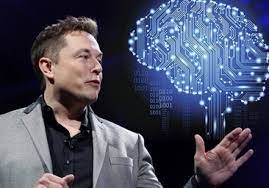- RESEARCHDistance Learning at AIU is enhanced by vast academic resources and innovative technologies build into the Virtual Campus: Hundreds of self-paced courses with video lectures and step by step lessons, thousands of optional assignments, 140,000 e-books, the Social Media & Networking platform allowing collaboration/chat/communications between students, and MYAIU develop students holistically in 11 areas beyond just academics.
- PROGRAMS OFFERED
- Areas of Study
- Courses and Curriculum
- Open Courses
- Register for a Program
- Associate Program
- Associate in Addiction Counseling
- Associate in Agriculture Food And Resources
- Associate in Anti Terrorism Security
- Associate in Behavior Analysis In Special Education
- Associate in Bioethics
- Associate in Climatology
- Associate in Cultural Theological Communication
- Associate in Culinary Arts
- Associate in Ecotechnology
- View all Associates Programs
- Bachelor Program
- Bachelors in Community Development
- Bachelors in Environmental Science
- Bachelor in Education (B.Ed, BS)
- Bachelors in Economics
- Bachelors in Entrepreneurship
- Bachelors in Financial Administration
- Bachelors in Human Resource Management
- Bachelors in Linguistics
- Bachelors in Nutritional Science
- Bachelors in Occupational Health and Safety
- Bachelors in Psychology
- View all Bachelor Programs
- Doctorate Program
- Doctor | of Biology (PhD)
- Doctorate in Business Administration (DBA, PhD)
- Doctor of Economics (PhD)
- Doctor of Electrical Engineering (D.Sc, PhD)
- Doctor of Finance (PhD)
- Doctorate in International Relations
- Doctorate in Information Technology (D.Sc)
- Doctor of Legal Studies (PhD)
- Doctor of Project Management (PhD)
- Doctor of Sociology (PhD, D.Sc)
- Doctorate in Sustainable Natural Resources Management
- View all Doctorate Programs
- Master Program
- Postdoctoral Program
- Postdoctoral in Animal Science
- Postdoctoral in Anti Terrorism Security
- Postdoctoral in Behavior Analysis In Special Education
- Postdoctoral in Bioethics
- Postdoctoral in Blockchain Technology and Digital Currency
- Postdoctoral in Business Management
- Postdoctoral in Cloud Computing
- Postdoctoral in Computer Engineering
- View all Postdoctoral Programs
AIU offers a wide range of majors in areas including the Arts, Business, Science, Technology, Social, and Human studies. More than 120 degrees and programs are available for adult learners at the associate’s, bachelor’s, master’s, doctoral and postdoctoral level. - VIRTUAL CAMPUS
Distance Learning at AIU is enhanced by vast academic resources and innovative technologies build into the Virtual Campus: Hundreds of self-paced courses with video lectures and step by step lessons, thousands of optional assignments, 140,000 e-books, the Social Media & Networking platform allowing collaboration/chat/communications between students, and MYAIU develop students holistically in 11 areas beyond just academics.
- ALUMNI
The world is YOUR campus!”, that is the message of AIU’s month magazine Campus Mundi. Hear the voices and see the faces that make up AIU. Campus Mundi brings the world of AIU to you every months with inspirational stories, news and achievements by AIU members from around the world (students and staff are located in over 200 countries).
Implementing AI in America's electrical networks: More efficient and sustainable operation

In what aspects can artificial intelligence enhance the resiliency of power grids in climate extremes including heat waves or storms?
What are the possible environmental benefits of using AI in grid management?
With the encouragement of AI in today’s power grid there are some security threats and how are security risks going to be mitigated?
(Login to your student section to access the AIU Additional Resources Library.)
Adoptando la Tecnología: Un Camino desde el Hobby hacia la Exploración Científica
California faced a heat wave that tested the sustainability of the power grid lately. Outdoor temperatures were extreme and climbed towards over 100 degrees, which lasted weeks, contributing to a higher than normal consumption of electricity and unexpected stress to the grid. Extreme morbid temperatures are a dramatic example of catastrophe, but all show the need to oversee and secure our critical infrastructure and electric grid in California or any state or country. An electric grid is a critical service to the contemporary world, which accumulates thousands of our outlets to supply electricity to (or will be) households, business enterprises, healthcare facilities, and other services.
The electrical grid facilitates economic activities, acts as a platform for technology, and ensures that millions of Americans can go about their daily lives.The challenge to the reliability and resilience of the electric grid presented by an aging infrastructure will trail off in the 21st century and become serious new challenges to the grid.
Climate change is leading to accelerated extreme weather events such as heatwaves, storms, and wildfires, that can destroy infrastructure, disrupt energy from flowing, and jeopardize public safety. This landscape will require fresh thinking and advanced technologies that increase efficiency and reliability, can optimize energy utilization, and facilitate clean energy from renewable sources.In this article, we considered how AI could reshape the power system to improve the efficiency, reliability, and sustainability of America’s electricity network and infrastructure.
We present AI technology as an option for managing the power grid, describing some of the benefits and challenges of energy AI, and opportunities for the future to enable AI to establish a more resilient power, low-carbon energy system.Through collaboration and thoughtful investment, AI-enabled innovation can help to generate the power grid of the future—one that is more efficient, reliable, and sustainable and will better serve communities and society for generations to come.

Current Status of the U.S. Power Grid
The U.S. power grid is a sizable and complicated system of generators, transmission lines, substations, etc. The grid has been developed over more than a century and underpins the U.S. economy by supplying essential services and power to businesses and residences. Nevertheless, this infrastructure is facing obsolescence and large scale challenges in the 21st century.
The Need for Power Grid Modernization
When we combine these challenges, we get a very strong sense of urgency to modernize our electricity grid. The first challenge is to successfully integrate renewable energy sources like wind and solar, which are variable in availability given weather yet do not provide the same stable degree of reliability of traditional generators. Such variability presents challenges to the reliability, resilience and stability of a power grid system.
Grid operators have to integrate divergent supply according to the predicting of the weather, while at the same time keeping in mind the diverse demand of current and new consumers.Another challenge relates to the infrastructure’s resilience to climate change and associated weather events, such as heat, storms, wind, and wildfires. In extreme instances, the weather events may impede or damage equipment and facilities causing outages of the energy supply and harming the community. Automated technologies and strategies that adapt and create flexibility, efficiency, and resiliency will be key in addressing these challenges.
The Importance of AI in Grid Management
The future of grid management will be intrinsically tied to developments in AI technologies for helping to make real-time decisions, perform predictive maintenance, and optimize energy deliveries. National Renewable Energy Laboratory (NREL) AI systems can analyze ample amounts of historical and real-time data to project anticipated energy needs of consumers, optimize specific activities of the grid system, and mitigate interruptions caused by weather events such as storms. For example, more recent eGridGPT models are based on machine learning models hyper-specifically designed to predict likely equipment failure events, recommend preventative maintenance and operational protocols, and run various scenarios for many considered outcomes. AI systems can track grid performance and conditions of the environment, improving efficiency and minimizing downtime for reliable delivery of energy.
Possible Advantages of Integrating Artificial Intelligence
Increased Reliability and Efficiency: The grid could increase reliability, through the utilization of artificial intelligence predictive analytics, by predicting possible equipment failures. Predictive analytics will provide increased scheduled maintenance, decrease unplanned maintenance, and optimize maintenance resources associated with emergency repairs, which will provide value to the operator.

Improved Optimization of Supply-Demand Matching: Using real-time data associated with energy production, consumption behavior, and impending weather forecasts, AI algorithms optimize supply-demand matching using predictive capabilities for the grid operator to determine energy generation or distribution.
Cost-Savings and Environmental Impact: By optimizing energy distribution and generation, utilizing renewable energy sources also provides cost-saving for the operator and the end users, as well as an environmental impact of reduced reliance on fossil fuels and lower carbon emissions in line with global commitments of climate change reduction.Moreover, energy management systems driven by AI enhances use of electricity and the shift toward a low-carbon economy.
Challenges and Considerations
Security Concerns: Implementing AI in the management of the electricity grid introduces some cybersecurity considerations, including the chance of being susceptible to boundaries and cyber threats. A high priority in enhancing organizational reliability and improving customer confidence is safeguarding AI-based systems against threats to the grid infrastructure.
Accuracy: Trust by stakeholders (Grid Operators, Regulators, Consumers, etc.) hinges on the AI models being accurate and trustworthy.All AI models should be trained on a complete dataset and validated in a controlled environment prior to deployment to ensure accurate insights and actionable recommendations.
Updating Infrastructure: The implementation of AI technologies will require substantial investments to upgrade electrical grid infrastructure to include advanced sensors, and smart meters as well as monitoring systems. Such infrastructure will allow real-time data assessment, decisions, and actions related to adaptive management for resilience of equipment and systems.
Conclusion
The opportunities that AI technologies are offering to transform the US power grid into a more efficient, dependable and sustainable network have never been possible before in history. The capacity from AI for predictive analysis and real-time decisions and optimal use of electricity to support operators solving a number of potential operational issues or challenges aids grid resilience and coordination of/with renewable generation.
Future Considerations
The development of AI technologies and the ongoing investment in the underlying support infrastructure for renewables will only accelerate the inevitable shift toward a resilient low-carbon energy future. If policymakers, business leaders and innovators support collaborations to utilize AI technologies in energy security, environmental sustainability and the UN sustainable development goals now.In conclusion, utilizing AI technology within the US electricity grid is a strategic investment for the intended outcome of improving energy efficiency, reliability, and sustainability.

If the USA manages to successfully address a number of difficulties and move forward in its approaches to regulation in order to adapt AI into its systems, it could increase the resilience of the USA’s electric infrastructure. This would not only serve to better serve society’s existing needs, but it could also lay the foundation for increased environmental sustainability for the future of generations. Join AIU to learn how innovation in AI and sustainable development will affect the future in education and technology globally.
Doctorate in Electrical Engineering
Technologies for AI Simulation
Online School of Science & Engineering
References
Reminder to our Dear Students,
Please ensure you are logged in as a student on the AIU platform and logged into the AIU Online
Library before accessing course links. This step is crucial for uninterrupted access to your learning
resources.
AIU Success Stories







Contact Us Today!
Begin Your Journey!
AIU’s Summer of Innovation and Growth gives you the ability to earn up to $5000 in tuition credit by completing free lessons and courses.
Whether you’re looking to acquire new skills, advance your career, or simply explore new interests, AIU is your gateway to a world of opportunities. With free access to 3400 lessons and hundreds of courses the ability to earn credits and earn certificates there’s no better time to start learning.
Join us today as a Guest Student and take the first step towards a brighter, more empowered future.
Explore. Learn. Achieve.

Contact Us
Atlantic International University
900 Fort Street Mall 905 Honolulu, HI 96813 [email protected]
Quick Links
Home | Online Courses | Available Courses | Virtual Campus | Career Center | Available Positions | Ask Career Coach | The Job Interview | Resume Writing | Accreditation | Areas of Study | Bachelor Degree Programs | Masters Degree Programs | Doctoral Degree Programs | Course & Curriculum | Human Rights | Online Library | Representations | Student Publication | Sponsors | General Information | Mission & Vision | School of Business and Economics | School of Science and Engineering | School of Social and Human Studies | Media Center | Admission Requirements | Apply Online | Tuition | Faculty & Staff | Distance Learning Overview | Student Testimonials | AIU Blogs | Register for Program | Privacy Policy | FAQ



















